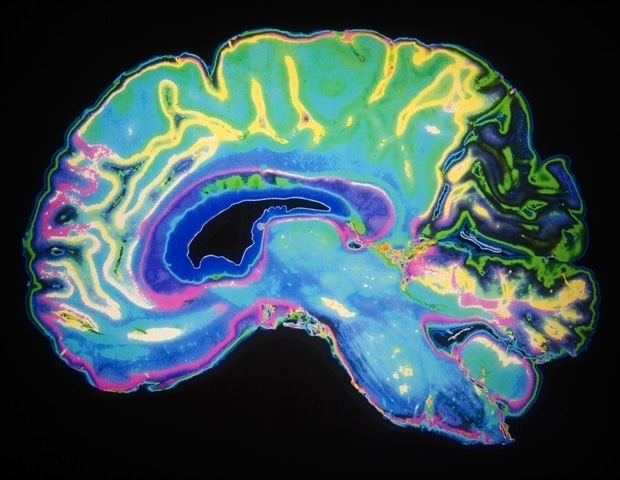Health
Disrupted Circadian Rhythms Linked to Alzheimer’s Disease Progression

Alzheimer’s disease disrupts patients’ daily rhythms significantly, manifesting as restless nights and increased daytime napping. These early signs, along with confusion during the evening hours, indicate an intricate relationship between the disease and the circadian system, which governs sleep and wake cycles. Researchers at Washington University School of Medicine in St. Louis have uncovered that circadian rhythms within specific brain cells are disrupted in Alzheimer’s disease, influencing the regulation of hundreds of genes essential to brain function. The findings, published on October 23, 2025, in Nature Neuroscience, suggest that targeting these disrupted rhythms could offer new therapeutic avenues for treatment.
The study, led by Erik S. Musiek, MD, PhD, highlights the link between circadian rhythms and the expression of genes associated with Alzheimer’s disease. According to Musiek, “There are 82 genes that have been associated with Alzheimer’s disease risk, and we found that the circadian rhythm is controlling the activity of about half of those.” In mouse models of Alzheimer’s, the typical daily activity patterns of these genes were significantly altered, underscoring the potential of manipulating circadian rhythms as a strategy to hinder disease progression.
Musiek, co-director of the Center on Biological Rhythms and Sleep (COBRAS) at WashU Medicine, has noted that changes in sleep patterns are among the most reported concerns from caregivers of Alzheimer’s patients. These alterations often commence years before noticeable memory loss occurs, contributing to both caregiver burdens and biological stresses that can accelerate disease advancement. Identifying the origins of this feedback loop is crucial for intervention.
The circadian clock is believed to influence approximately 20% of all human genes, managing various processes, including digestion and immune responses. Musiek previously identified a protein, YKL-40, that fluctuates with the circadian cycle and regulates levels of amyloid proteins in the brain. Excess YKL-40 is linked to an elevated risk of Alzheimer’s, as it promotes amyloid accumulation—a hallmark of the neurodegenerative condition.
In the latest study, Musiek and his team analyzed gene expression in the brains of mice with amyloid protein accumulations mirroring early Alzheimer’s stages, alongside healthy young and aged mice without such accumulations. They collected tissue samples at two-hour intervals over a 24-hour period to assess gene activity during different phases of the circadian cycle.
The research revealed that amyloid accumulations disrupt the daily rhythms of numerous genes in brain cells, specifically microglia and astrocytes. Microglia are crucial for the brain’s immune response, while astrocytes support neuronal communication. Although the circadian disruption did not completely shut down the affected genes, it transformed a coordinated sequence of activities into a chaotic pattern, potentially hindering the brain’s ability to clear amyloid effectively.
Additionally, the presence of amyloid appears to induce new rhythms in hundreds of genes that typically do not exhibit circadian activity. Many of these genes play roles in the brain’s inflammatory response to amyloid plaque build-up.
Musiek’s findings suggest a promising direction for future therapies aimed at targeting circadian cycles in microglia and astrocytes to enhance healthy brain function. “We have a lot of things we still need to understand, but where the rubber meets the road is trying to manipulate the clock in some way,” he stated. “Ultimately, we hope to learn how to optimize the circadian system to prevent amyloid accumulation and other aspects of Alzheimer’s disease.”
This research was supported by the National Institute on Aging and the National Institute of Neurological Disorders and Stroke, among other institutions. Musiek and his colleagues continue to pave the way for innovative approaches to combat the challenges posed by Alzheimer’s disease through the lens of circadian biology.
-

 Health2 months ago
Health2 months agoNeurologist Warns Excessive Use of Supplements Can Harm Brain
-

 Health2 months ago
Health2 months agoFiona Phillips’ Husband Shares Heartfelt Update on Her Alzheimer’s Journey
-

 Science4 days ago
Science4 days agoBrian Cox Addresses Claims of Alien Probe in 3I/ATLAS Discovery
-

 Science2 days ago
Science2 days agoNASA Investigates Unusual Comet 3I/ATLAS; New Findings Emerge
-

 World2 months ago
World2 months agoCole Palmer’s Cryptic Message to Kobbie Mainoo Following Loan Talks
-

 Entertainment3 months ago
Entertainment3 months agoEmmerdale Faces Tension as Dylan and April’s Lives Hang in the Balance
-

 Entertainment3 months ago
Entertainment3 months agoLove Island Star Toni Laite’s Mother Expresses Disappointment Over Coupling Decision
-

 Entertainment3 months ago
Entertainment3 months agoKerry Katona Discusses Future Baby Plans and Brian McFadden’s Wedding
-

 Entertainment2 months ago
Entertainment2 months agoMajor Cast Changes at Coronation Street: Exits and Returns in 2025
-

 Lifestyle2 months ago
Lifestyle2 months agoEngland Flags Spark Controversy This Summer: A Cultural Debate
-

 World2 months ago
World2 months agoCoronation Street’s Asha Alahan Faces Heartbreaking Assault
-

 Entertainment2 months ago
Entertainment2 months agoMasterChef Faces Turmoil as Tom Kerridge Withdraws from Hosting Deal









